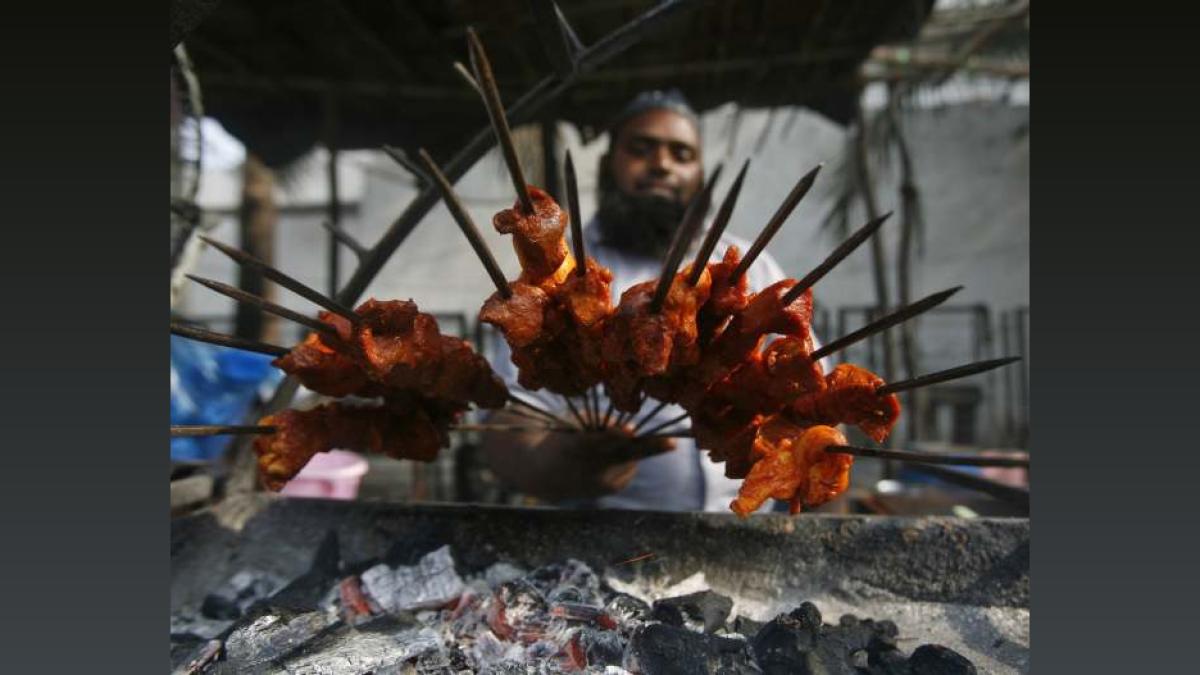Halal Certification Deadline Extended to July 4
India extends the deadline for halal certification bodies and export unit registration till July 4, 2024, aiming to streamline the certification process for meat and meat products.

New Delhi, Apr 24 (PTI) The government has extended the deadline for accreditation of halal certification bodies and registration of export units by three months till July 4 this year.
Last year, the Directorate General of Foreign Trade (DGFT) had notified the policy conditions for halal certification process for meat and meat products and had directed the existing bodies to seek accreditation from National Accreditation Board for Certification Bodies (NABCB) for i-CAS (Indian Conformity Assessment Scheme) Halal till April 5, 2024.
"Time period for accreditation of halal certification bodies and registration of export units has been extended by a period of three months, up to July 4, 2024," DGFT said in a notification.
DGFT is an arm of the commerce ministry which deals with exports and import-related issues.
As per the guidelines, meat and its products are allowed to be exported as 'halal certified' only if they are produced, processed and packaged in a facility having a valid certificate issued by a body accredited by a board of the Quality Council of India.
They have to seek accreditation from NABCB.
Products covered under the notification include meat of bovine animals, fish and chilled meat of sheep and goats; and sausages and similar meat products.
To streamline the certification of meat and meat products as halal from the country, 'India Conformity Assessment Scheme (i-CAS)' has been developed.
Earlier, there was no mandatory halal certification system in India regulated by the government as the country does not have a national regulation for the certification.
The global halal food market was USD 1,978 billion in 2021. The market is projected to reach USD 3,907.7 billion by 2027.
In India, the country's halal industry is still in its infancy. There are no specific labelling requirements for halal food products imported to India.
Halal certification is given by many private companies in the country, marking the food or products as permissible.
The major halal-certifying organisations in the country include Halal India Pvt Ltd and Jamiat Ulama-i-Hind Halal Trust. The International Halal Accreditation Forum (IHAF) is an international network of accreditation bodies mandated to enforce halal standards in their economies.
Indonesia, Malaysia, Thailand, the Philippines, the UAE, and Pakistan, have their own halal standards. However, so far there have been no global halal standards.
The rapid growth of the halal industry has not only led to the halal technologies and innovations but also halal-related laws and regulations that are still not harmonised globally.
Last year, the Directorate General of Foreign Trade (DGFT) had notified the policy conditions for halal certification process for meat and meat products and had directed the existing bodies to seek accreditation from National Accreditation Board for Certification Bodies (NABCB) for i-CAS (Indian Conformity Assessment Scheme) Halal till April 5, 2024.
"Time period for accreditation of halal certification bodies and registration of export units has been extended by a period of three months, up to July 4, 2024," DGFT said in a notification.
DGFT is an arm of the commerce ministry which deals with exports and import-related issues.
As per the guidelines, meat and its products are allowed to be exported as 'halal certified' only if they are produced, processed and packaged in a facility having a valid certificate issued by a body accredited by a board of the Quality Council of India.
They have to seek accreditation from NABCB.
Products covered under the notification include meat of bovine animals, fish and chilled meat of sheep and goats; and sausages and similar meat products.
To streamline the certification of meat and meat products as halal from the country, 'India Conformity Assessment Scheme (i-CAS)' has been developed.
Earlier, there was no mandatory halal certification system in India regulated by the government as the country does not have a national regulation for the certification.
The global halal food market was USD 1,978 billion in 2021. The market is projected to reach USD 3,907.7 billion by 2027.
In India, the country's halal industry is still in its infancy. There are no specific labelling requirements for halal food products imported to India.
Halal certification is given by many private companies in the country, marking the food or products as permissible.
The major halal-certifying organisations in the country include Halal India Pvt Ltd and Jamiat Ulama-i-Hind Halal Trust. The International Halal Accreditation Forum (IHAF) is an international network of accreditation bodies mandated to enforce halal standards in their economies.
Indonesia, Malaysia, Thailand, the Philippines, the UAE, and Pakistan, have their own halal standards. However, so far there have been no global halal standards.
The rapid growth of the halal industry has not only led to the halal technologies and innovations but also halal-related laws and regulations that are still not harmonised globally.
You May Like To Read
TODAY'S MOST TRADED COMPANIES
- Company Name
- Price
- Volume
- Vodafone-Idea-L
- 11.65 (+ 3.56)
- 106772451
- Alstone-Textiles
- 0.28 ( -3.45)
- 44187760
- Mangalam-Industrial
- 0.88 ( -2.22)
- 39177573
- Sunshine-Capital
- 0.27 (+ 3.85)
- 35956340
- GMR-Airports
- 104.40 (+ 6.37)
- 30453005





